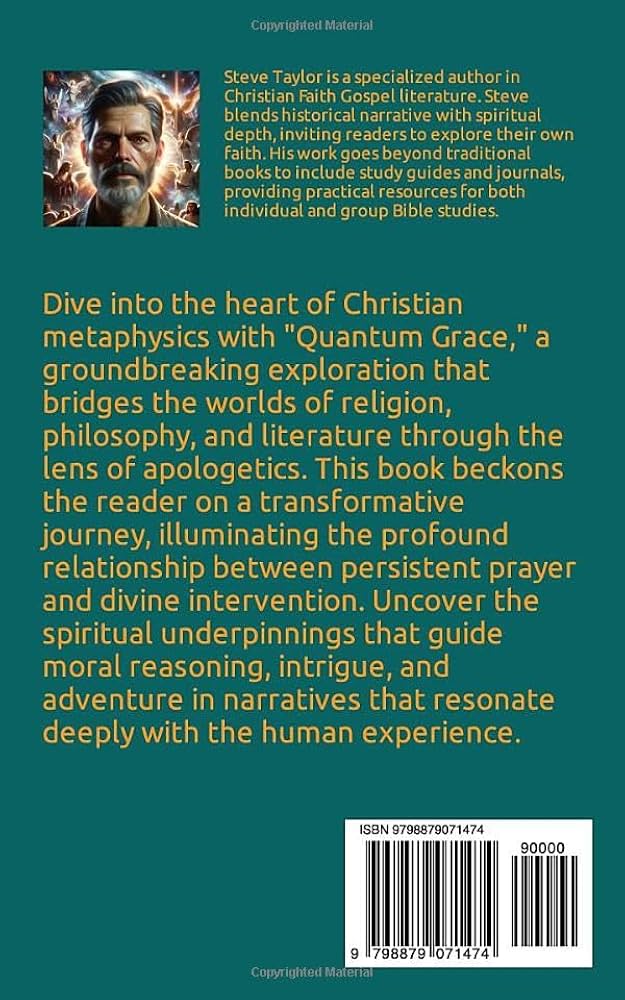Exploring Religious Experience and Metaphysics: A Deeper Dive
Have you ever felt a profound connection to something beyond the material world? These moments, often described as religious experiences, are not merely fleeting emotions but can deeply influence our understanding of reality itself. This exploration delves into the intricate relationship between religious experience and metaphysics, examining how our spiritual encounters shape our fundamental beliefs about existence, consciousness, and the very fabric of the universe.
The Intertwined Nature of Belief and Being
At its core, metaphysics is the branch of philosophy that investigates the fundamental nature of reality. It asks questions like: What is real? What exists? What are the ultimate constituents of reality? When we consider religious experience, we often encounter phenomena that challenge purely materialistic or empirical explanations. These experiences can range from mystical visions and profound spiritual insights to a sense of divine presence or cosmic interconnectedness.
The intersection of religious experience and metaphysics is where our personal spiritual journeys meet the grand philosophical inquiries into existence. For many, a powerful religious experience can lead to a re-evaluation of their metaphysical assumptions. A sudden feeling of transcendence, for instance, might solidify a belief in a non-physical soul or a divine creator, directly impacting their metaphysical framework.
Phenomenology and the Subjective Reality
Understanding the role of phenomenology, as introduced by thinkers like Edmund Husserl, is crucial here. Phenomenology focuses on the structures of consciousness and the phenomena that appear to it. In the context of religious experience, it helps us analyze the lived quality of these encounters – what it feels like to experience the divine or to feel a profound spiritual awakening. This subjective reality, while personal, can have objective metaphysical implications for the individual.
By examining these experiences through a phenomenological lens, we can begin to understand how they shape our perception and interpretation of the world. The raw data of a religious experience – the emotions, the insights, the altered states of consciousness – are then processed through our existing metaphysical beliefs, or they can prompt the creation of entirely new ones.
How Religious Experiences Shape Metaphysical Worldviews
Religious traditions are often built upon foundational metaphysical claims. These claims are frequently reinforced and validated through the collective and individual religious experiences of their adherents. Consider the concept of karma in Eastern religions, or the belief in an afterlife in many Abrahamic faiths. These are not just abstract doctrines; they are often deeply felt truths for those who have experienced moments of profound spiritual insight or have witnessed what they perceive as divine intervention.
The Challenge to Materialism
One of the most significant impacts of religious experience on metaphysics is its challenge to strict materialism – the philosophical view that only matter and energy exist. Experiences of consciousness that seem to transcend the physical body, or encounters with what is perceived as a non-material reality, can lead individuals to question whether the material world is the entirety of existence. This can open the door to metaphysical systems that include dualism (mind and body are distinct) or idealism (reality is fundamentally mental or spiritual).
For example, near-death experiences, often described as profound spiritual journeys, have been cited as evidence for a reality beyond physical death. While scientific explanations are still debated, the subjective impact of such experiences on an individual’s metaphysical outlook can be transformative. [External Link: Information on Near-Death Experiences from a reputable scientific journal] This leads to a deeper consideration of what constitutes reality and whether our current scientific models are exhaustive.
The Role of Faith and Evidence
The relationship between religious experience and metaphysics is also deeply intertwined with the concepts of faith and evidence. While religious experiences are often considered deeply personal and evidential for the individual, they may not always translate into universally accepted empirical proof. This is where faith plays a critical role, bridging the gap between subjective experience and metaphysical certainty.
However, the very nature of religious experience can also be seen as a form of evidence, albeit of a different kind than scientific data. It provides a lived testament to the reality of spiritual or divine dimensions, prompting philosophical inquiry into the nature of knowledge and belief. The question then becomes: what constitutes valid evidence for metaphysical claims?
Metaphysical Implications of Mystical States
Mystical experiences, characterized by a sense of unity, transcendence, and ineffability, have long been a fertile ground for metaphysical speculation. These states often involve a dissolution of the ego and a feeling of oneness with the universe, which can lead to metaphysical conclusions about the interconnectedness of all things or the existence of a universal consciousness.
Unity and Non-Duality
Many profound religious experiences point towards a metaphysical understanding of unity or non-duality – the idea that reality is fundamentally one, and the perceived separation of self from the other, or from the cosmos, is an illusion. This perspective can radically alter one’s understanding of personal identity, ethics, and the nature of suffering.
The concept of Brahman in Hinduism, or the Buddhist notion of emptiness (sunyata), are metaphysical frameworks that resonate deeply with the reported experiences of unity and interconnectedness. Such experiences suggest that our ordinary, ego-bound perception of reality might be a limited view of a much larger, unified whole.
The Problem of Consciousness
Religious experience also throws a spotlight on the enduring philosophical problem of consciousness. If consciousness is merely an emergent property of the brain, how can we account for experiences that seem to transcend physical limitations? The subjective, first-person nature of these experiences presents a significant challenge to purely reductionist materialistic views of mind.
Philosophers of mind and theologians alike grapple with how to integrate these profound subjective realities into a coherent metaphysical picture of the universe. The possibility of consciousness existing independently of the physical body, or being a fundamental aspect of reality, are metaphysical questions directly informed by the testimony of religious and mystical experiences. [External Link: Stanford Encyclopedia of Philosophy on the Mind-Body Problem] This ongoing dialogue highlights the dynamic and evolving nature of our understanding of what it means to be conscious and real.
Navigating the Landscape of Belief
The dialogue between religious experience and metaphysics is not a one-way street. While experiences can shape beliefs, our pre-existing metaphysical frameworks also influence how we interpret and integrate these experiences. Someone with a strongly materialistic worldview might interpret a profound spiritual moment as a hallucination or a neurological anomaly, whereas someone with a spiritual inclination might see it as a genuine encounter with the divine.
A Personal and Universal Quest
Ultimately, the exploration of religious experience and metaphysics is a deeply personal, yet universally resonant, quest. It invites us to question the nature of reality, the limits of our perception, and the profound impact that our inner lives have on our understanding of everything.
As we continue to explore these profound connections, we are invited to consider:
- What are the limits of empirical observation in understanding ultimate reality?
- How do our deepest spiritual insights inform our ethical frameworks?
- Can subjective experience provide valid grounds for metaphysical claims?
- What does it truly mean to believe, and how does that belief shape our world?
The journey into religious experience and its metaphysical implications is an ongoing exploration, a testament to humanity’s enduring search for meaning and truth in the vast expanse of existence. It reminds us that the most profound questions about reality are often answered not just through intellect, but through the transformative power of lived experience.
Conclusion: The Enduring Dialogue
The relationship between religious experience and metaphysics is a rich and complex tapestry, woven from the threads of personal encounter and philosophical inquiry. From challenging materialistic worldviews to illuminating the nature of consciousness and unity, these experiences continually push the boundaries of our understanding. They serve as potent catalysts for re-evaluating what we consider real and how we relate to the universe around us.
Call to Action: Share your own thoughts on the connection between spiritual experiences and the nature of reality in the comments below! Let’s continue this fascinating conversation.



